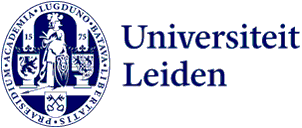Lecture
LUCIR Lecture: Inside Gang Governance: How and Why Gangs Rule the Streets of Rio de Janeiro
- Date
- Friday 14 April 2023
- Time
- Address
-
Wijnhaven
Turfmarkt 99
2511 DP The Hague - Room
- room 2.02
Between violent coercion and responsive governance
For more than four decades, drug trafficking gangs have monopolised violence in hundreds of favelas (informal neighbourhoods) across Rio de Janeiro and replaced state authority with governance forms of their own. Yet these relationships vary considerably across time and space. Some gangs have developed responsive relations with local populations by resolving disputes, stimulating the local economy, and providing various forms of recreation. In other favelas, gangs have engaged in more coercive and violent behaviour while offering residents few benefits. What accounts for this variation?
Building on 18 months of ethnographic fieldwork in one set of gang territories, Barnes argues that gang governance is shaped by the local security environment as gangs face two primary threats, from rival gangs and the police, which incentivise a divergent set of behaviours. An active rival threat will produce gangs that rely more on coercion to control local populations while gangs will provide more benefits to gain resident silence and support when they face active enforcement by the police. However, gang governance is not merely a top-down process but also depends on how residents respond to gangs. Barnes demonstrates how governance outcomes are produced by dynamic and repeated interactions between gang members and residents within a distinct set of security environments. To test this theory, Barnes uses hundreds of interviews with gang members and residents, archival documents, and micro-level quantitative data to trace gang governance practices over thirty years for three different gang organisations in Complexo da Maré, Rio’s largest cluster of favelas.

About the speaker
Nicholas Barnes is a lecturer (Assistant Professor) in the School of International Relations at the University of St Andrews. Previously, he was a Visiting Assistant Professor of Political Science at Grinnell College (2019-2020) and a Postdoctoral Fellow at Brown University’s Watson Institute for International and Public Affairs (2017-2019). Barnes holds a B.A. from Coe College (2004), a Masters in Ethno-Communal Conflict from University College Dublin (2008), and a Ph.D. in comparative politics from the University of Wisconsin–Madison (2017).
Barnes’ research focuses on political and criminal violence, illicit markets, public security, and non-state governance in Latin America. His current book project, ‘How Gangs Govern’ (under contract with Cambridge University Press) examines how drug trafficking gangs relate to favela communities in Rio de Janeiro. Barnes’ research has been funded by the Harry Frank Guggenheim Foundation, the National Science Foundation, the Social Science Research Council’s Drugs, Security and Democracy in Latin America and the International Dissertation Research Fellowships as well as the Department of Education through the Fulbright-Hays Doctoral Dissertation Research Abroad.
About the discussants
Erik Bähre, Associate Professor at the Institute of Cultural Anthropology and Development Sociology of Leiden University, and Abbey Steele, Associate Professor of Political Science at the University of Amsterdam, will serve as discussants. Corinna Jentzsch, Assistant Professor at the Institute of Political Science, will moderate the discussion.
This event is open to the public; all are welcome.
